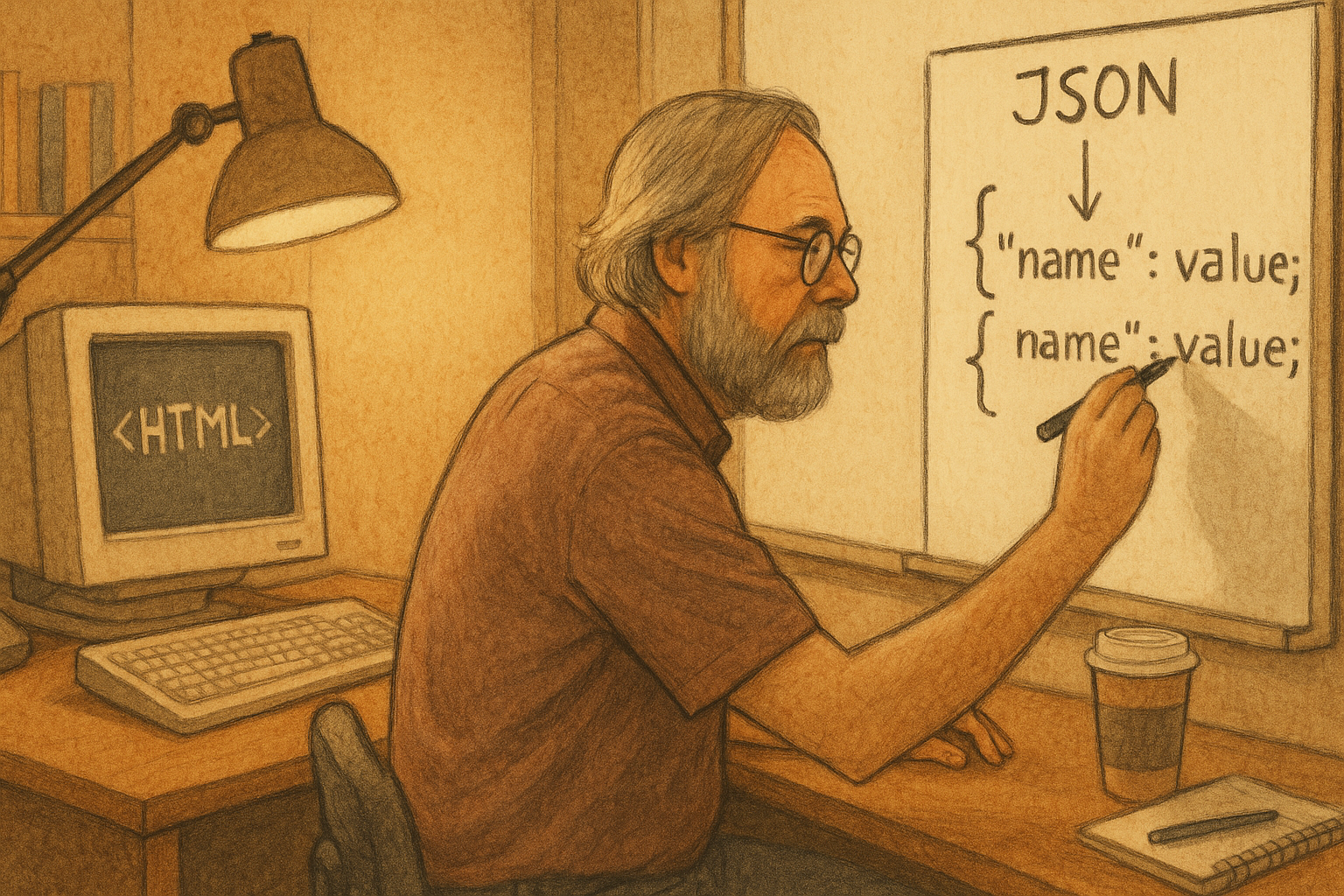
The Making of JSON: A Personal Story of Simplicity
The human story of how Douglas Crockford’s quest for simplicity in data structures transformed the way the web talks to itself.
Related Tools:
The Making of JSON: A Personal Story of Simplicity
When you work with web tools, APIs, or even simple scripts, it’s almost impossible not to cross paths with JSON — JavaScript Object Notation. It’s the neat, human-readable format that powers data exchange across millions of apps, websites, and platforms. But behind this ubiquitous technology lies a story of one man’s pursuit of elegance in an increasingly complicated digital world.
Meet Douglas Crockford
In the early 2000s, Douglas Crockford was working on web technologies and found himself frustrated. The web needed a standard way to exchange structured data that was easy for humans to read and for machines to parse. XML was the reigning champion at the time, but it was verbose, rigid, and frankly, unpleasant for lightweight use.
Crockford saw potential in something hiding in plain sight — JavaScript’s own object literal syntax. With a few rules and a clear standard, this syntax could become a universal language for data exchange. And so, JSON was born.
The Philosophy: Less is More
Crockford’s approach was rooted in the belief that simplicity is not a compromise — it’s a strength. JSON has only a handful of data types: strings, numbers, booleans, arrays, objects, and null. No schemas, no excessive markup, no unnecessary ceremony. This minimalism made it easier for developers to adopt and for systems to integrate.
The result? A format so simple that even people new to coding could read and understand it instantly.
How JSON Changed the Web
By standardizing JSON, Crockford gave the web a shared data language. REST APIs, single-page applications, and countless backend systems now use JSON as their default format. This helped pave the way for the rich, interconnected web we know today — from social media feeds to live-updating dashboards.
It’s not flashy. It doesn’t have a logo. But JSON is one of the quiet heroes of modern computing.
A Lasting Legacy
Douglas Crockford often jokes that JSON is “the world’s most loved data format,” but its success comes from something deeper: the idea that powerful tools don’t need to be complicated.
Next time you run a JSON parser, remember the simple idea that started it all — and the developer who believed that less could truly be more.
